Gene Fowler
Teacher, biologist, conservationist, father
Gene Fowler, a Pomona College professor who was a driving force behind the Claremont Colleges’ environmental analysis program, died November 1, 2012 at Pomona Valley Hospital Medical Center after an illness. He was 58.
Dr. Fowler was born October 1, 1954 in Ames, Iowa to Audrey and Murray Fowler and spent most of his youth in Davis, California. Considering that his father was a mammal veterinarian, it is little wonder that he developed an early passion for animals.
After high school, Dr. Fowler went on to earn a bachelor’s degree in biological conservation from Cal State Sacramento in 1980 and a master’s degree in wildland resource science from UC Berkeley in 1985. He received a PhD in zoology from the University of Washington in 1993, after authoring a dissertation on the behavior of Magellanic penguins and their reproductive and stress endocrinology.
Dr. Fowler’s greatest concern was the impact of human activity on birds and mammals, and he traveled far and wide researching vulnerable and endangered species. He spent quite a bit of time in Argentina, in particular, becoming fluent in Spanish and studying the Pampas deer and his beloved Magellanic penguins. He presented his findings in dozens of articles and at conferences held throughout the world. A talk presented at the 1994 Pacific Seabird Group meeting in Sacramento, “Low levels of oil fouling suppress reproductive hormones in the Megellanic penguin,” typifies Dr. Fowler’s scientific preoccupations.
After a brief time as an instructor at the University of Washington, Dr. Fowler found a home as an associate professor at Pomona College in 1993. Known affectionately as Doc Fowler to friends and colleagues, he set to work developing courses such as Conservation Biology and Comparative Endocrinology. He eventually joined with geology professor Dr. Richard Hazlett and mathematics professor Dr. Rick Elderkin in founding a new interdisciplinary program and major concentration in environmental analysis, which has since gone on to become one of Pomona College’s 5 largest majors and a cross- collegiate program available to all Claremont College students.
From 1995 to 2001, Dr. Fowler was the director of the Robert J. Bernard Biological Field Station of the Claremont Colleges. After 2001, he remained involved in the Bernard Field Station and was the chair of the advisory committee. Students report being profoundly impacted by his unflagging dedication to wildlife and impressed by his prolific fieldwork and writing, which extended well beyond academia.
There was a touch of an Indiana Jones feel to Dr. Fowler, who was known for being able to grab a penguin and take a blood sample in less than a minute. He had countless colorful anecdotes, including the tale of one heart-stopping moment when he was walking alone on a beach in Argentina and encountered a mountain lion.
Biology professor Nina Karnovsky—who has also spent years studying penguins—met Dr. Fowler in the early 1990s when their paths crossed at various penguin meetings. He never failed to impress her.
“He was one of those people who have an amazing depth of knowledge about animals. He was really one of the smartest people I ever met,” she said.
At one point, Dr. Fowler’s smarts helped Dr. Karnovsky solve a longstanding mystery.
“For 5 years, I had a mysterious bone sitting on my desk that had come from the Arctic, and I never could identify it because it wasn’t one of the animals I encountered during my research.” Dr. Karnovsky said. “It was kind of haunting me.”
“Then one day Gene came into my office and happened to glance down and see it. He said, ‘That’s a mole bone,’ and said the mole was probably moving north because of [ice] melting,” she continued. “I looked in a book and he was right. It was a dead ringer.”
Like many among the Pomona College community who knew Dr. Fowler, biology professor Jonathan Wright is still coming to grips with the sudden death of his energetic colleague.
“He was a wonderfully broad and deeply educated person, with a passion for forging a higher level of ecological awareness,” Dr. Wright said. “Rather than just being what the media would portray as a tree hugger, he was very pragmatic about looking at issues that tend to jeopardize wildlife. He was always forcing students to look at what, in very real terms, are viable ways to preserve what native biodiversity we have.”
Mr. Fowler was awarded tenure in 1999. Never one to rest on his laurels, he went on to help establish an environmental analysis study abroad program at the University of Cape Town. Prior to the construction of Pomona College’s Richard C. Seaver Biology Building, he also successfully campaigned the school’s administration to pursue an ecologically sustainable design. Ultimately, the building became the first Claremont Colleges project to gain LEED certification from the US Green Building Council.
In recent years, Dr. Fowler did not travel as much as he had during his primary years of fieldwork. He met Cynthia Peters, director of news and information at Pomona College, in 2001 and they married in a ceremony at Griffith Park in 2003. With the birth of his son Zachary, family became his first concern.
Ms. Peters and Dr. Fowler bonded through their mutual love of the natural world and being outdoors. Many of their early dates involved bird watching in the Chino Hills, at Bolsa Chica in Huntington Beach, along the California coast and at the Bernard Field Station. Dr. Fowler was very interested in local wildflowers and would often pull over along a highway or mountain road for a better look. Locally, he counted Claremont’s Evey Canyon among his favorite places.
“When I think of those times or the EA field trips, I always picture him with his binocululars around his neck, thumbing through his bird book to give me a close-up,” Ms. Peters said.
Dr. Fowler took care to nurture the same curiosity about nature in their son.
“It’s hard to forget the image of a very large shiny green fruit beetle landing on Gene’s nose and him calmly calling to Zachary so he could see it before removal,” she said.
Dr. Fowler’s impact can be seen in their son’s behavior, according to Ms. Peters.
“Every bug is something interesting to be studied, soccer games forgotten if a large praying mantis makes an appearance,” Ms. Peters said. “Every backyard lizard is exciting and offers the possibility of a catch and on road trips, Zachary too wants to study many of the flowers, plants, rocks and animals.”
Dr. Fowler spent years studying wildlife in far-flung and exotic locales but he considered fatherhood to be one of his greatest accomplishments and adventures, according to Mr. Fowler’s colleagues.
“He never stopped talking about his son. He was so proud of him and anytime there was a moment in the office, he would tell you about the accomplishments of this wonderful little boy, Zachary,” shared Dr. Wright. “I remember when he was a baby, Gene said, ‘He really has good hand-eye coordination. I think he’s going to play baseball.’”
Dr. Fowler was a huge baseball fan. His favorite team was the San Francisco Giants, though he also rooted for the Los Angeles Angels and the Rancho Cucamonga Quakes. For at least the last 10 years, reports his wife, they took annual trips to Arizona for the Cactus League’s spring training games. Two years ago, his son met the Giants’ Buster Posey at spring training, and he soon became one of their favorite players. When biology professor Clarissa Cheney would organize summer student trips to Quakes games in Rancho Cucamonga, Dr. Fowler would go along for the ride, and engage in a bit of multi-tasking.
“He would bring his binoculars to the game because there were hawks that lived in the lights at the Quakes Stadium,” Dr. Cheney noted in a tribute to Dr. Fowler published in Pomona College’s Student Life.
Music was another profound interest for Dr. Fowler, who minored in music while attending Cal State Sacramento. He was an accomplished guitarist, who composed his own music and enjoyed taking the stage from time to time with a trio that included Jennifer Perry, a former Pomona College anthropology professor, and her husband.
Dr. Fowler is deeply missed, said Dr. Hazlet.
“He was a big robust ecologist, full of interest in the world and a lot of energy and great intelligence,” he said.
Many former students have begun posting tributes to Dr. Fowler on the Pomona College website as well as on the Pomona College Facebook page.
“Dr. Fowler was an inspiring lecturer. He always told such great stories and his endocrinology class is what…made me pursue my interest in endocrinology and Conservation Biology in graduate school for my PhD,” Katherine Ayres (’04) wrote on the Pomona College site. “ His passion for environmental protection was admirable and his class remains one of my favorites when I was at Pomona College.”
Dr. Fowler is survived by his wife, Cynthia Peters; by his son, Zachary; by his parents, Murray and Audrey Fowler; by his siblings, Janet Akema, Linda Allen, Tricia Craft and Alan Fowler, and by their families.
He will be honored with a celebration of life at Bridges Hall of Music on November 24 at 2 p.m., followed by a reception. In lieu of flowers, the family asks that donations go to the Claremont Educational Foundation at: claremonteducationalfoundation.org or to the California State Parks Foundation.

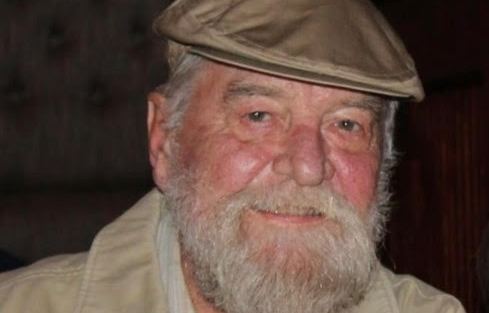
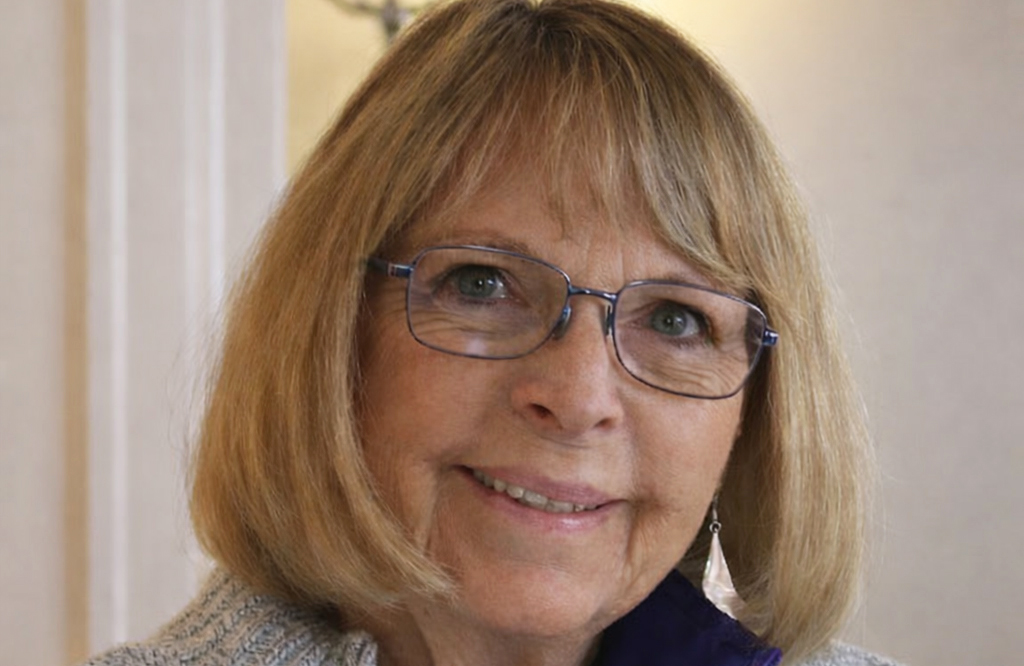
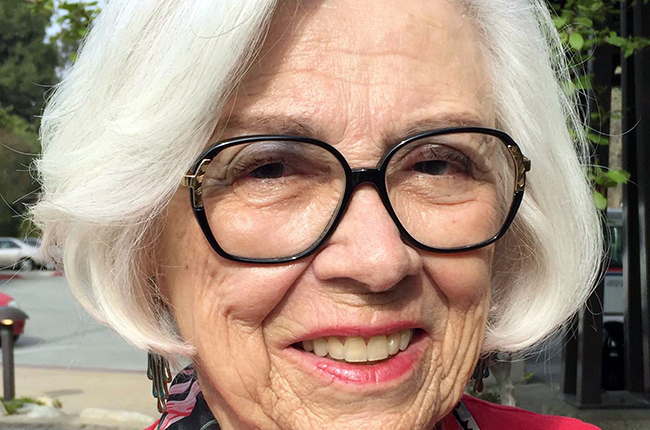
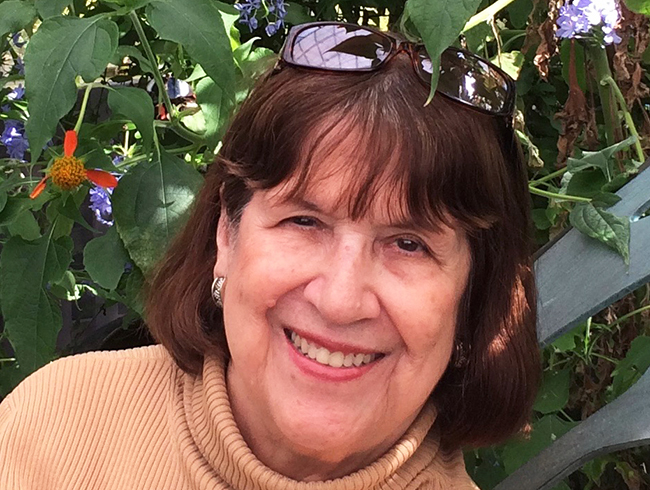
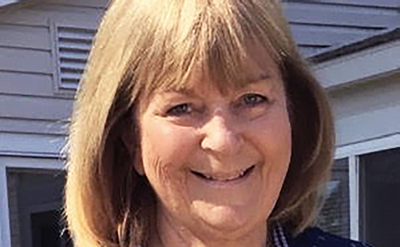
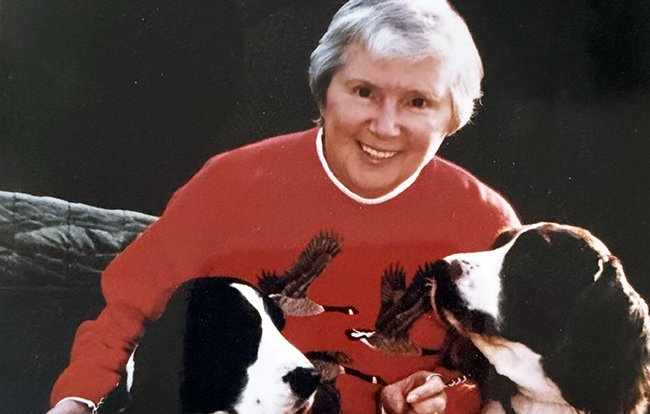

0 Comments